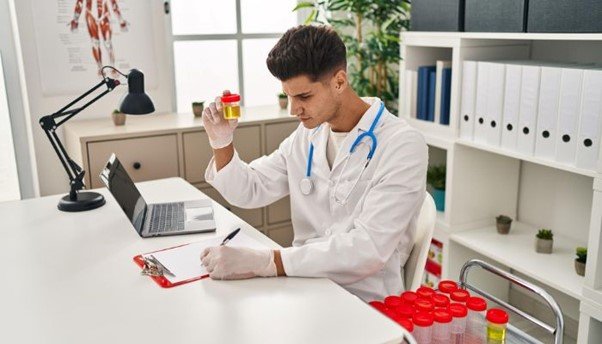Introduction
In today’s interconnected world, pharmacists play a critical role in the global healthcare system. As healthcare practices evolve, there is an increasing demand for B.Pharm and D.Pharm graduates to be well-prepared for international pharmacy practice. This blog will delve into the global health perspectives that shape the education and preparation of pharmacy graduates for successful careers across the globe.
Understanding Perspectives

Global health perspectives involve understanding healthcare practices, policies, and challenges that transcend national borders. For B.Pharm and D.Pharm graduates, this means gaining knowledge about various healthcare systems, cultural competencies, and international regulations.
Importance of Global Health in Pharmacy Education
The integration of perspectives in pharmacy education ensures that graduates are not only well-versed in local practices but also equipped to handle international challenges. This comprehensive approach prepares them for diverse work environments, enhancing their adaptability and problem-solving skills.
Preparing for International Pharmacy Practice
- Curriculum Enhancement:
- Incorporate global health courses that cover international pharmaceutical policies, healthcare systems, and emerging health issues.
- Include case studies and projects focused on international scenarios to provide practical experience.
- Cultural Competency:
- Train students to understand and respect different cultural practices and patient behaviors.
- Encourage participation in international exchange programs and internships to gain firsthand experience.
- Regulatory Knowledge:
- Educate graduates on the regulatory requirements for pharmacists in different countries.
- Familiarize students with international laws and ethical practices in pharmacy.
Challenges in International Pharmacy Practice

Despite the benefits, there are several challenges B.Pharm and D.Pharm graduates may face when practicing internationally:
- Language Barriers:
- Overcoming language differences is crucial for effective communication with patients and healthcare professionals.
- Encourage learning multiple languages to ease this transition.
- Regulatory Variations:
- Navigating through different countries’ regulations can be complex and time-consuming.
- Provide resources and support for understanding and complying with these regulations.
- Cultural Differences:
- Adapting to diverse cultural practices and healthcare beliefs requires sensitivity and adaptability.
- Promote cultural awareness training within the curriculum.
Opportunities for B.Pharm and D.Pharm Graduates

- Global Career Prospects:
- Opportunities in multinational pharmaceutical companies, international healthcare organizations, and global health agencies.
- Roles in drug safety, regulatory affairs, clinical trials, and health policy.
- Research and Development:
- Contributing to international research projects aimed at addressing global health issues.
- Collaboration with international researchers to innovate and improve healthcare solutions.
- Public Health Initiatives:
- Involvement in global health initiatives such as vaccination programs, disease prevention campaigns, and health education.
- Working with NGOs and international bodies to improve health outcomes worldwide.
Steps to Prepare for an International Career in Pharmacy

Continuous Education:
Pursue additional certifications and courses in global health, international pharmacy practice, and foreign languages.
Professional Networking:
Join international pharmacy organizations and attend global health conferences.
Build a network of professionals from different countries to share knowledge and opportunities.
Practical Experience:
Gain experience through internships and volunteer work in international settings.
Seek opportunities in organizations with a global presence.
Conclusion
Preparing B.Pharm and D.Pharm graduates for international pharmacy practice involves a multifaceted approach that includes enhancing education, fostering cultural competence, and providing regulatory knowledge. By embracing global health perspectives, pharmacy graduates can significantly impact healthcare worldwide, contributing to better health outcomes across different populations.
FAQ
How can B.Pharm and D.Pharm graduates prepare for international pharmacy practice?
Graduates can prepare by enhancing their curriculum with global health courses, gaining cultural competency through training and international experiences, and understanding regulatory requirements in different countries. Continuous education, professional networking, and practical experience are also essential steps.
What are the challenges faced by pharmacists practicing internationally?
Some of the main challenges include language barriers, regulatory variations, and cultural differences. Overcoming these requires learning multiple languages, understanding international regulations, and adapting to diverse cultural practices and healthcare beliefs.
What opportunities are available for B.Pharm and D.Pharm graduates in international pharmacy practice?
Graduates can find opportunities in multinational pharmaceutical companies, international healthcare organizations, and global health agencies. They can also work in drug safety, regulatory affairs, clinical trials, health policy, research and development, and public health initiatives.
Why is cultural competency important for pharmacists working internationally?
Cultural competency is important because it enables pharmacists to understand and respect different cultural practices and patient behaviors. This skill is essential for providing effective and empathetic care in diverse healthcare settings, ensuring better patient outcomes and satisfaction.
How can pharmacy students gain practical international experience?
Students can gain practical international experience through internships, volunteer work, and participation in international exchange programs. These opportunities allow them to apply their knowledge in real-world settings, understand global healthcare systems, and build professional networks.
What role do global health courses play in preparing pharmacy graduates for international practice?
Global health courses provide students with knowledge about international pharmaceutical policies, healthcare systems, and emerging global health issues. These courses often include case studies and projects focused on international scenarios, offering practical experience and preparing students for global challenges.
How can B.Pharm and D.Pharm graduates stay updated on international pharmacy regulations?
Graduates can stay updated by pursuing additional certifications and courses in international pharmacy practice, joining professional organizations, attending global health conferences, and utilizing online resources and databases that provide information on international regulations and best practices.
What is the significance of professional networking for international pharmacy practice?
Professional networking is significant as it helps graduates connect with professionals from different countries, share knowledge and experiences, and access job opportunities. Networking also provides support and resources for navigating the complexities of international pharmacy practice.
How can pharmacists contribute to global health initiatives?
Pharmacists can contribute to global health initiatives by participating in vaccination programs, disease prevention campaigns, and health education efforts. They can work with NGOs and international bodies to improve health outcomes, conduct research, and develop innovative healthcare solutions for global health challenges.








